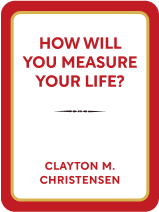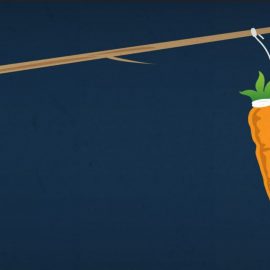

This article is an excerpt from the Shortform book guide to "How Will You Measure Your Life?" by Clayton M. Christensen. Shortform has the world's best summaries and analyses of books you should be reading.
Like this article? Sign up for a free trial here .
Do you want to find out how to discover your purpose? How can you work out what you truly want from life?
Most people want to find their purpose in life, but it can be difficult. In his book How Will You Measure Your Life?, Clayton Christensen offers helpful tips for how to discover your purpose.
Find out how to discover your purpose below.
Clayton Christensen: How to Discover Your Purpose
In How Will You Measure Your Life? business consultant and Harvard professor Clay Christensen shows how economic theories that help businesses succeed can also help individuals with finding purpose. He presents theories and business case studies that show you pitfalls to avoid, and also how to be happy and successful in your career and personal life.
Typical self-help books on how to succeed and be happy are based mostly on anecdotes and on routines that worked for the authors, but that may or may not work for you.
In contrast, we know theories work: They’re tested, proven, and can be universally applied. A theory is a statement of cause and effect. Economic theories show the impact on a business of doing certain things; they predict what will happen in the future and what steps managers might take. They can do the same for your personal life.
Christensen began exploring these questions after finding that many of his former Harvard Business School classmates had struggled in their personal lives, and often didn’t enjoy their work despite significant professional accomplishments. A few, including Jeffrey Skilling of Enron, ended up on the wrong side of the law.
Christensen wrote this book to help define a path to both professional and personal success. It’s intended to help you find fulfillment by understanding what’s most important to you, and ultimately answering the question of how you’ll measure your life.
Knowing Your Purpose
The theories in this book won’t be of any use to you unless you have a purpose or an understanding of what you’re trying to achieve in your life. For the theories to help you make decisions by predicting outcomes, you need a basis for weighing potential outcomes.
For a business, having a clear purpose drives executive decisions and keeps employees focused on what’s important to the company. Similarly, you need a purpose for your life, against which to weigh decisions.
A company’s purpose provides three things:
1) A model or picture of what the company will look like or be when it has achieved its goals
2) The full commitment of executives and employees to the model they’re trying to create (no one compromises on it under any circumstances)
3) Several metrics the company’s leaders and employees can use to measure progress individually and collectively
Companies that want to have an impact need to choose a purpose deliberately—it won’t just materialize—then pursue it with a strategy that accommodates both a deliberate plan and emergent opportunities.
Finding Purpose In Life
Similarly, you need to choose your own purpose (decide what kind of person you want to be and what you want to achieve in your life), and pursue it with an evolving strategy. The same elements that comprise a company’s purpose—a model, commitment, metrics—should be part of your purpose. This is crucial for finding out how to discover your purpose in life.
As an example of how to do this, here’s how Christensen applied the formula:
Model
Christensen based his answer for who he wanted to become on his values of family and faith:
- Someone who helps improve others’ lives
- A husband, father, and friend who is kind, honest, forgiving, and generous
- Someone who is guided by God
Commitment
Deep commitment to the above values guides Christensen’s daily priorities—what he chooses to do and not do. This helped him with finding purpose in his life.
Metrics
This metric is the yardstick you’ll use to measure your life. Christensen decided to measure or assess his life by the number of people he helps to grow and become better people. This metric leads him to constantly look for ways to help others.
Figuring out how to discover your purpose in life gives you a framework for making sense of every other decision and circumstance. The theories and knowledge presented in this book can help guide your career, relationships, and ethics, but your purpose is your North Star.
(Shortform note: For more on defining your own and your company’s purpose, read our summary of Start With Why, by Simon Sinek, here.)
How to Discover Your Purpose: Try This Exercise
For a business, having a clear purpose drives decisions and keeps people focused on what’s important to the company. Similarly, you need a purpose for your life, against which to weigh decisions. The three components of a purpose are: a model for who you want to be, commitment to that goal or value, and a metric by which you’ll measure your life.
If you want to know how to discover your purpose, try the following exercise:
- Write out a statement describing the kind of person you want to be and what you want to achieve in your life.
- How will your commitment to becoming this person drive your daily decisions?
- How will you measure whether you’re living up to your standard?

———End of Preview———
Like what you just read? Read the rest of the world's best book summary and analysis of Clayton M. Christensen's "How Will You Measure Your Life?" at Shortform .
Here's what you'll find in our full How Will You Measure Your Life? summary :
- How economic theories that help businesses succeed can also help individuals make better life decisions
- How to build a career that makes you happy
- How to deepen your relationships with your spouse and children






